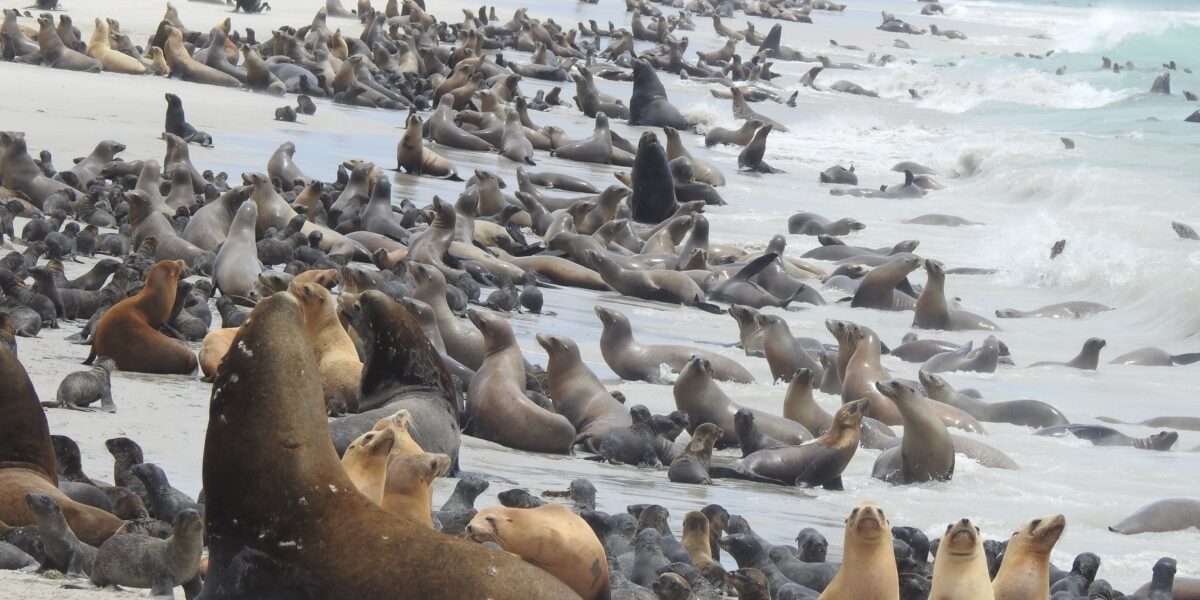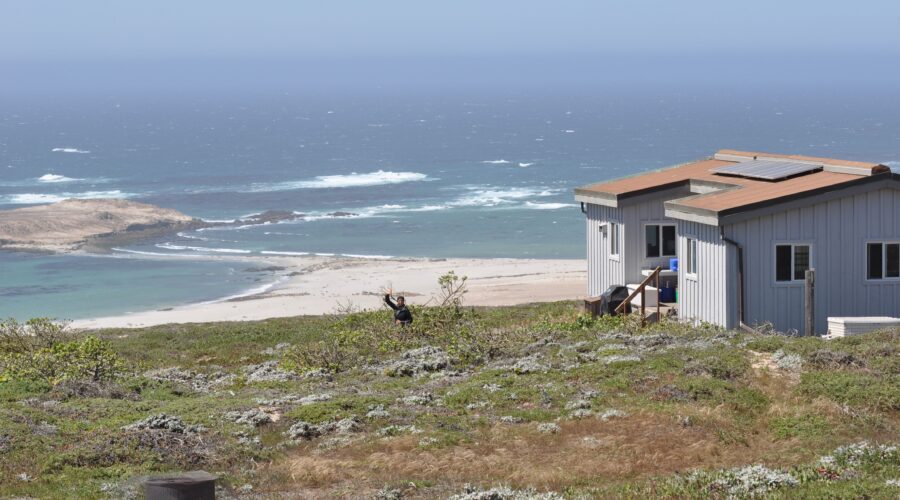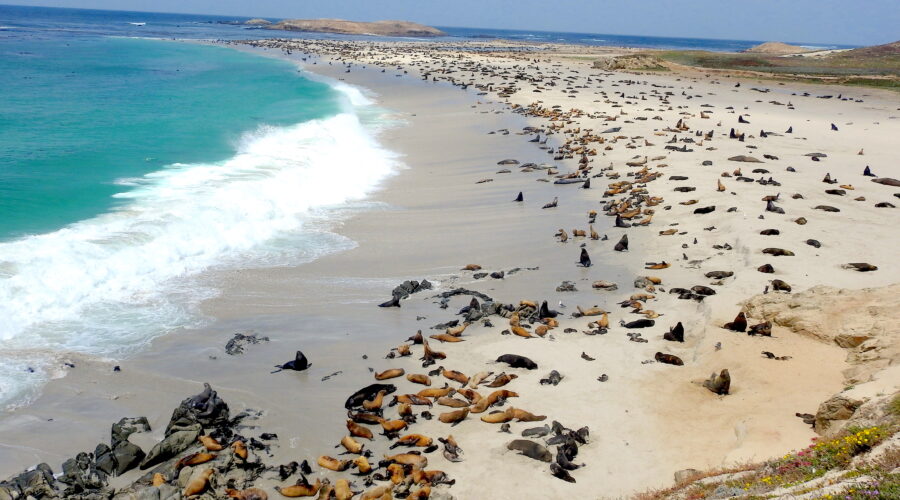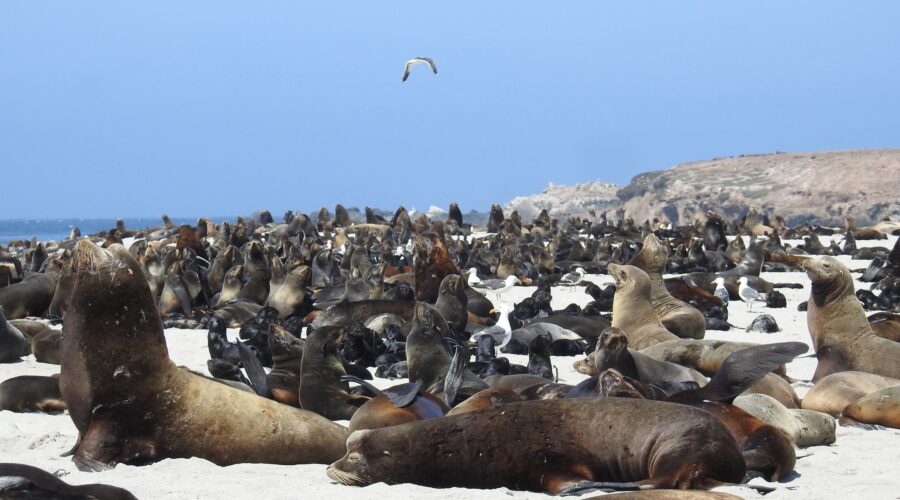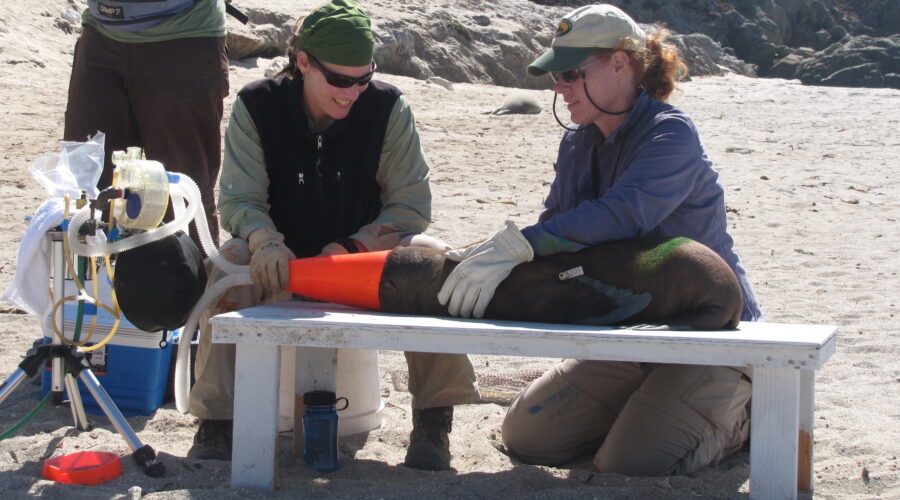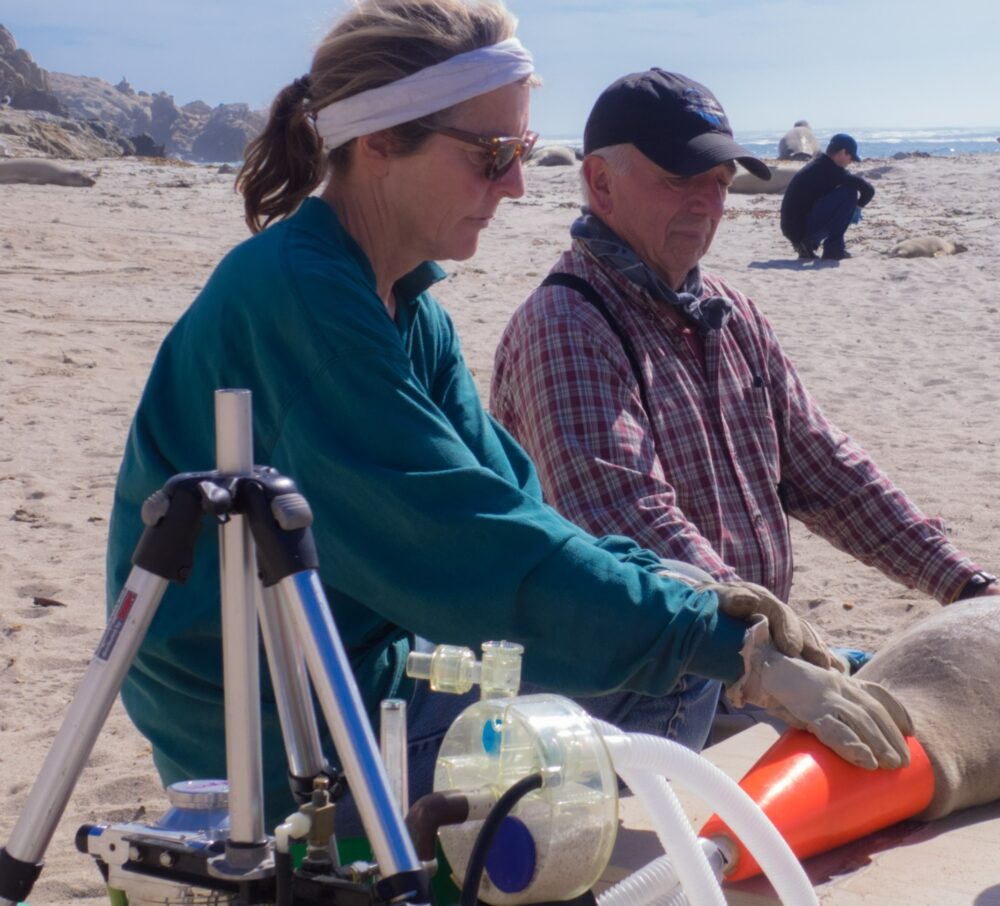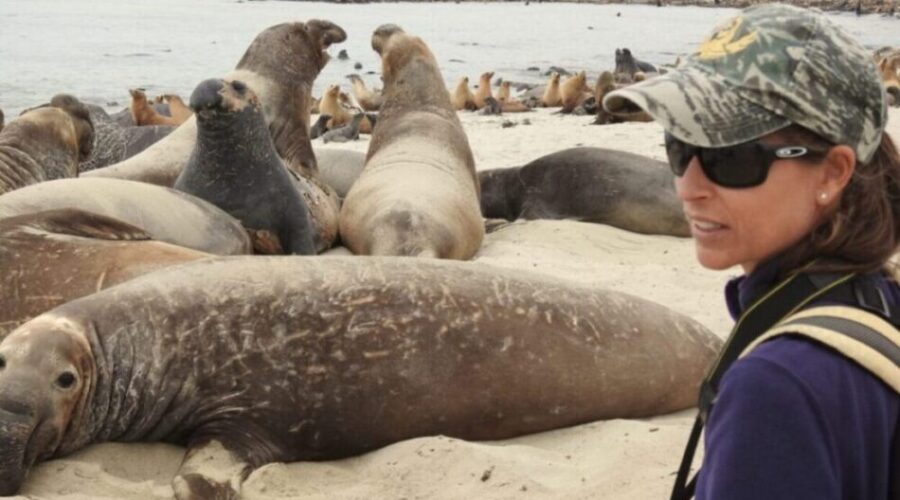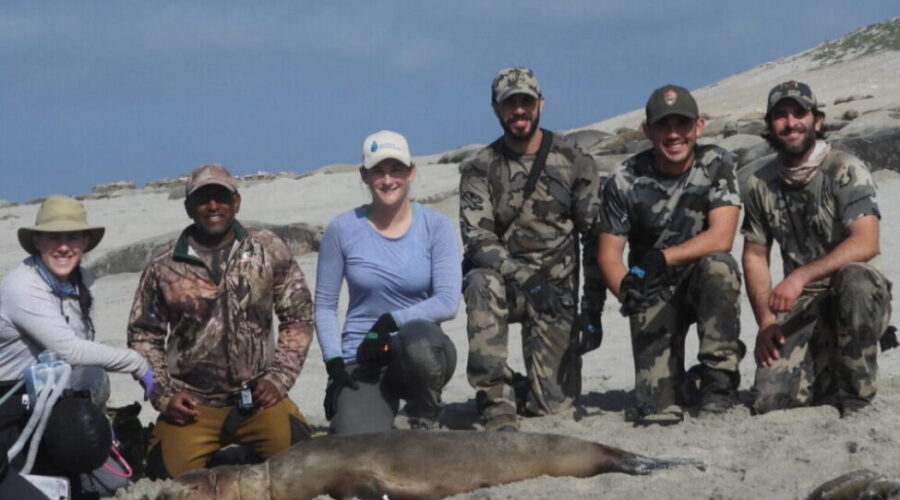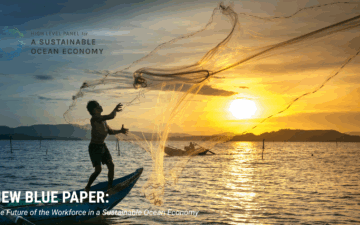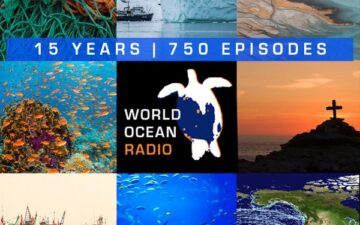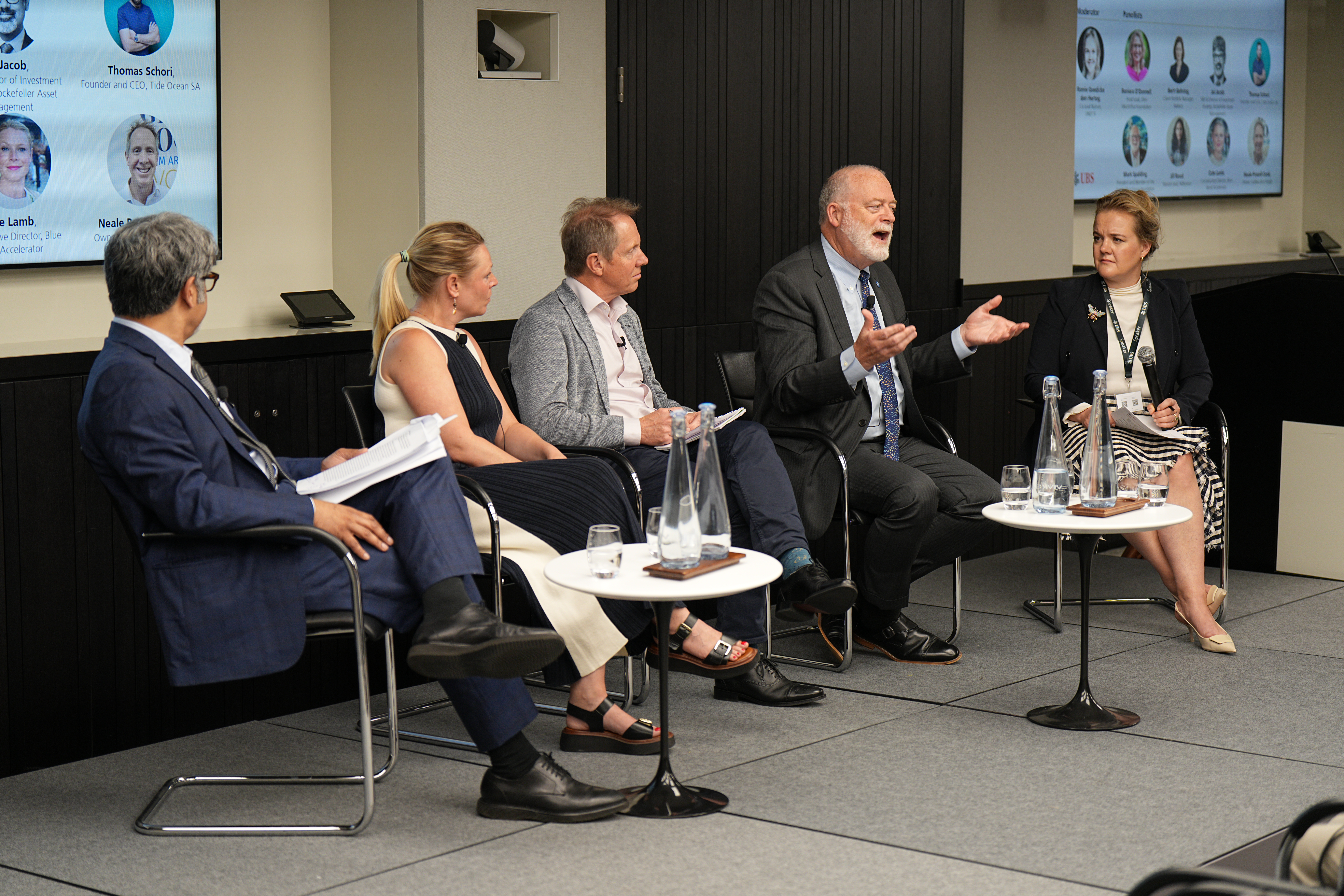CCIMMI: Building on a 50-year legacy of Channel Islands pinniped research

Our Mission:
The California Channel Islands Marine Mammal Initiative (CCIMMI) was founded with a mission to support population biology studies of six species of pinnipeds (sea lions and seals) in the Channel Islands. Pinnipeds are sentinels of ocean welfare—they provide early warning signs of changes in the ecosystem that may affect other ocean life and humans because we all share the same ocean resources.
Our Structure:
CCIMMI operates as a public-private partnership between Alaska Fisheries Science Center (AFSC), National Marine Fisheries Service (NMFS), National Oceanic and Atmospheric Administration (NOAA), and The Ocean Foundation (TOF). The purpose of this partnership is to ensure the continuation of more than 50 years of marine mammal research studies in the California Channel Islands that informs climate change and ocean conservation issues on the West Coast.
CCIMMI supports the science-based program of pinniped population biology in the California Channel Islands led by the California Current Ecosystems Program (CCEP) of the Marine Mammal Laboratory at AFSC. With San Miguel Island Research Station as the primary base for essential fieldwork, the program focuses on assessments of the health, abundance, birth and death rates, and foraging ecology of five pinniped species breeding in the Channel Islands and how these are impacted by changes in the ecosystem. Strong scientific collaborations have led to a multitude of advanced studies in the fields of pinniped population ecology, epidemiology of infectious diseases, and the health impacts of environmental toxins (both naturally occurring domoic acid from harmful algal blooms and human-made pollutants such as DDT) including reproductive failure and cancer. CCIMMI enables these successful collaborations among federal, academic, and private partners.
Our Projects:
Project 1: Demographic studies to maintain a known-age population of pinnipeds to understand impacts of ocean climate change on West Coast pinnipeds. Marking animals of each cohort allows assessments of how environmental threats affect different age classes of pinniped populations.
Project 2: Mitigating California sea lion entanglement in marine debris. Rescue and disentangling pinnipeds prevents mortality and allows identification of the source of entangling debris.
Project 3: Documenting Persistent Organochlorine Pollutant levels in California Channel Island pinnipeds. Tissue biopsies allow the evaluation of the impacts of legacy and newly discovered organochlorine pollutant sources from California coastal waters on pinniped populations.
Project 4: Assessing pinniped foraging behavior and ecology in an era of ocean climate change. Food habits analysis allows diet assessments that relate to animal health and document how diet changes with climate-driven changes in prey availability.
Project 5: Assessing prevalence of emerging diseases in marine mammals in the Channel Islands. Tissue sampling of known-aged animals aids in understanding the effects of novel disease organisms on the health of pinniped populations.
Project 6: Coordination of logistic and financial support for San Miguel Research Station based Operations. Funding air transport of researcher teams, equipment and supplies and maintenance of the research station enables successful field research in the California Channel Islands.
Our Team:
With over 130 years of combined experience and more than 400 research papers to their names, CCIMMI’s founders are world-renowned leaders in the field of marine mammal science. The team consists of CCEP’s founding Program Manager, Robert DeLong, PhD; Frances Gulland, Vet MB, PhD; Animal Husbandry Manager at The Marine Mammal Center, Sophie Guarasci, RVT; and her husband, Robert Guarasci, a former investment industry executive with a passion for ocean conservation. The team works closely with Sharon Melin, PhD, the current Program Leader of the CCEP.
Financial Objectives:
CCIMMI’s goal is to support the pinniped population research program. Essential operation costs include transportation and logistics expenses as well as a budget to maintain the infrastructure of the San Miguel Research Station. With no salaries or fixed costs, we anticipate a lean annual budget of approximately $100,000 and aim to raise $500,000 to cover the next five years of operations.
CLOSE
